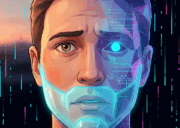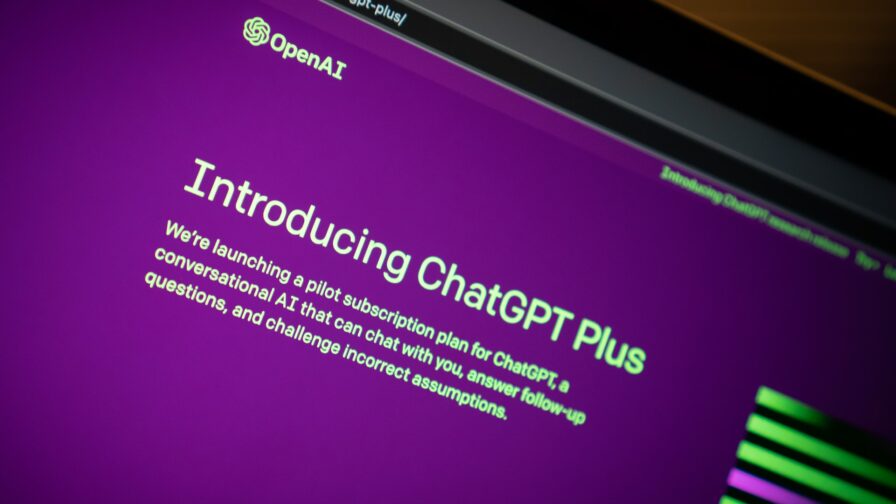
Since its release, we have heard a lot about ChatGPT. From dystopian visionary founders telling the world that humans are becoming useless to curious people who are just experimenting, up to debunkers eager to find and expose every weakness of ChatGPT, everyone seems to have something to say about it.
In this article, we are going to explore ChatGTP for what it is: a powerful, cutting-edge language model that represents a great shift in how we retrieve information from the web. No more queries based on keywords, no more chat-bots that randomly answer with nonsense articles that solve nothing (like the one from our mobile phone provider assistance), but search based on sentence and intention, as if we were talking to another human.
Through some practical experiments, we will disclose if ChatGPT will effectively change forever how we search, study, and have fun on the web.
Use of ChatGPT at work
Let’s start with what cannot be denied: the greatest improvement ChatGPT brings is its usefulness for almost every kind of work, especially in software development. It can significantly boost the productivity of developers, providing snippets of code like StackOverflow but without all the useless comments. Or you can also just ask about a simple aspect of some framework that you are not familiar with. It will provide precise and technical information that can really be of help for solving a single issue or just guide you through a specific aspect of a framework.
Here are the answers to two rather specific questions about a bash script, another one about Shadowing in Rust, and autowired in SpringBoot:
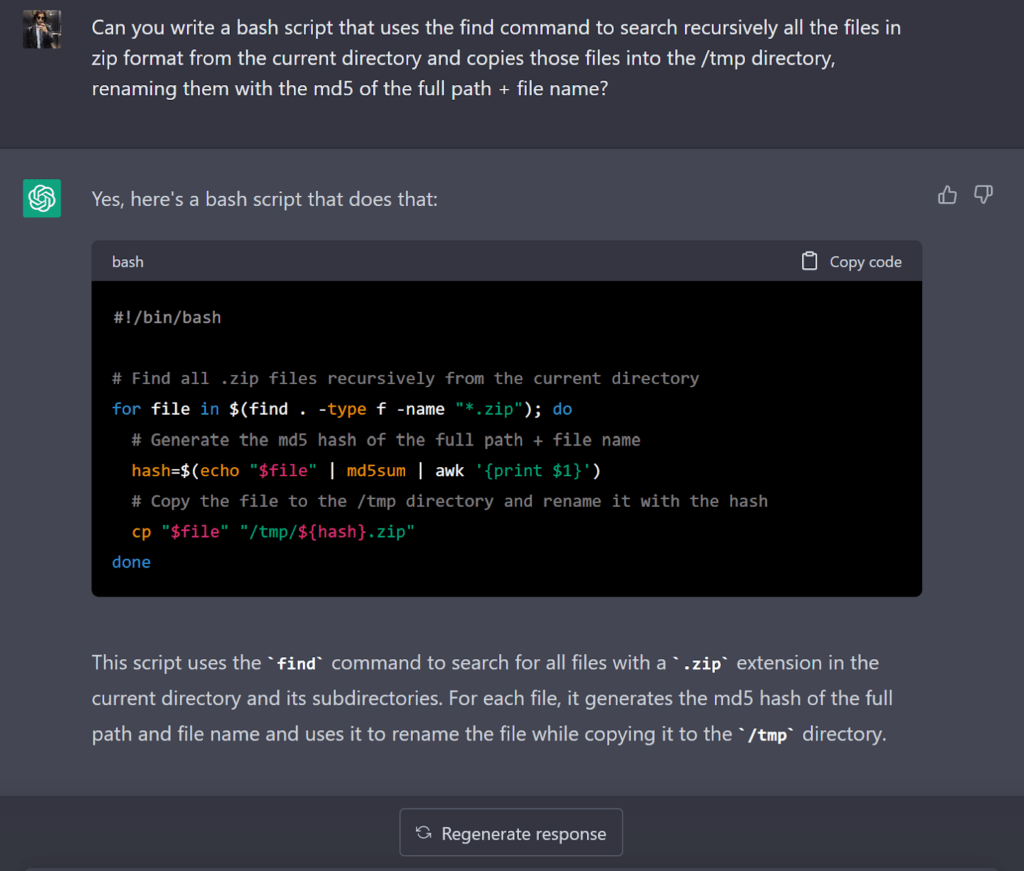
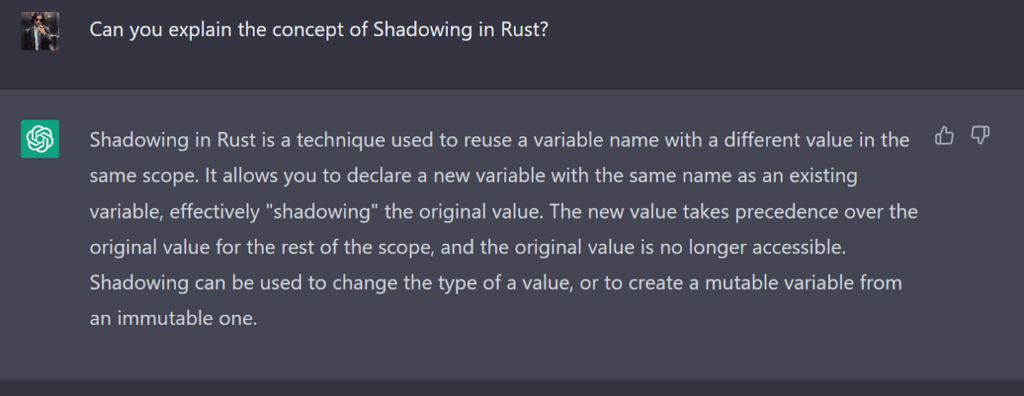
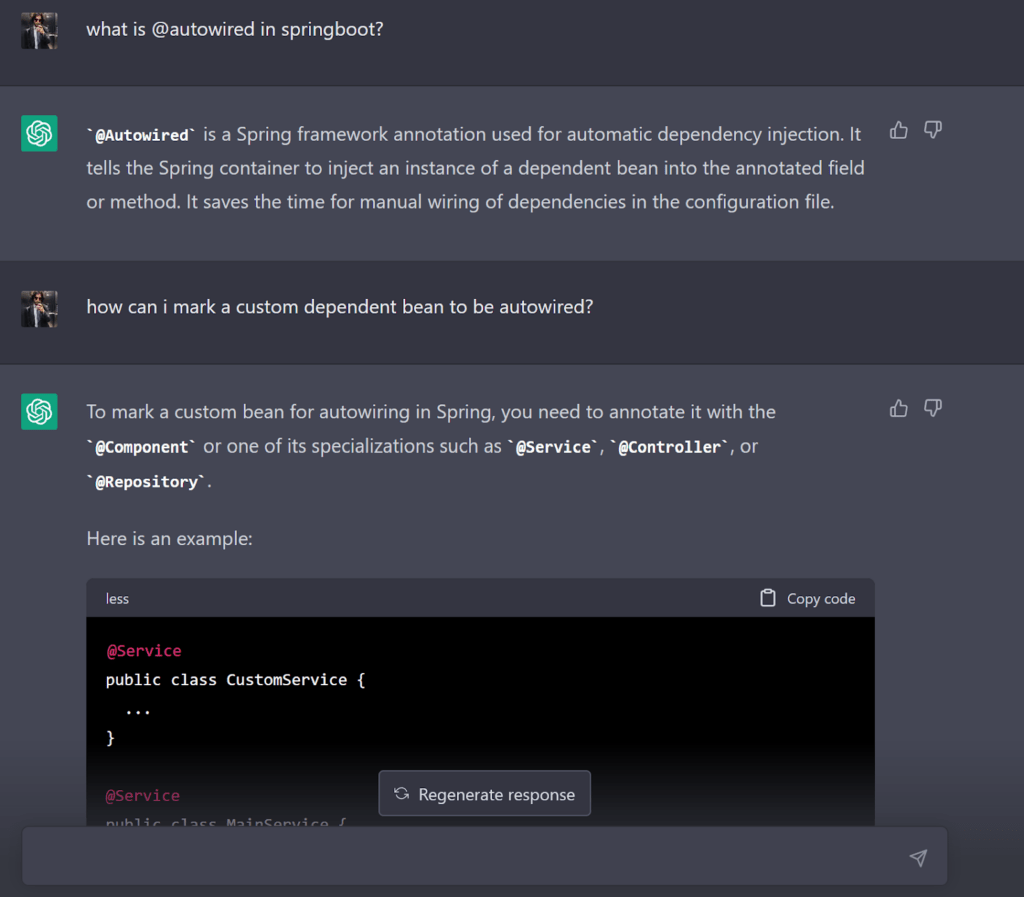
It is faster and easier than googling around until you find the answer and less time-consuming than reading tons of manuals and documentation. It can make your life and your work easier in many ways!
Practical examples to use at School
Studying is another universe that might change forever with the arrival of these kinds of AI tools. From AI-based essay writing tools to rephrasing bots and autocorrection tools, education systems will probably need to adapt soon to this new reality, as homework activities will never be the same.
We might also want to use ChatGPT to study, dive deeper into some topics, or maybe just clear some doubts or something we missed during class. However, when it comes to history and specific questions regarding politicians, we start seeing that it cannot be trusted at 100%. On the other hand, it’s great at maths!
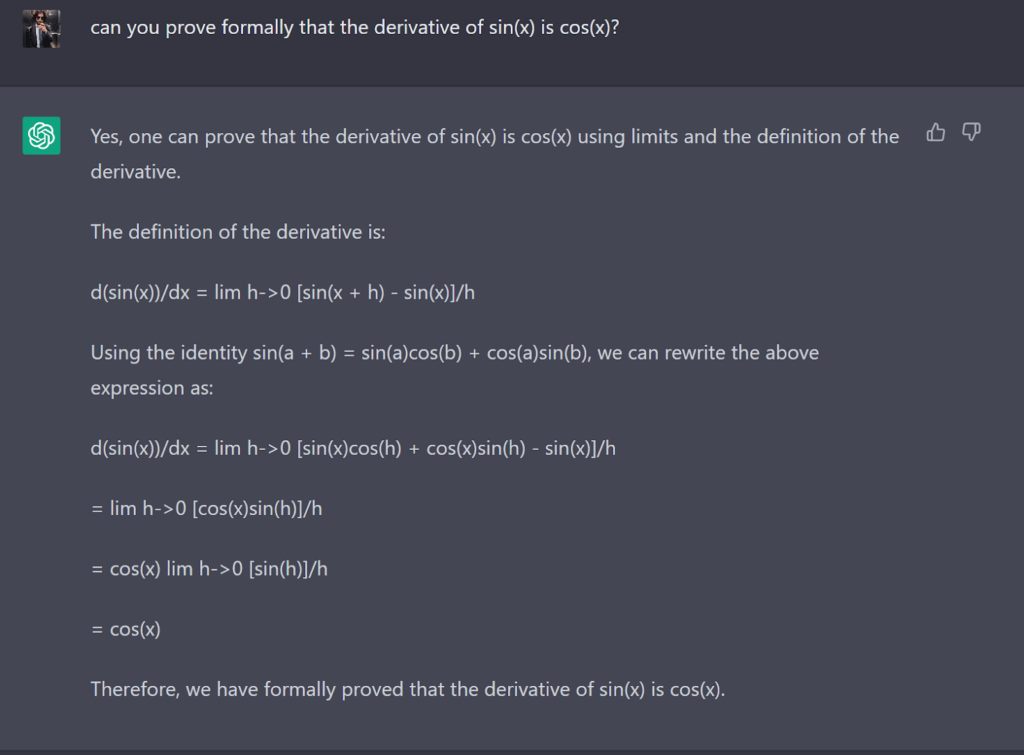

From the previous image, we can see two big limits. The first one is that the model has limited knowledge, up to 2021. Second, it is not possible to learn continuously, and training iteratively on those big models is expensive. Therefore, the first question we might ask ourselves is if the model on which this technology is based will be sustainable in the future.
Using ChatGPT for amusement
Then I remembered about last Friday night outside a pub in my hometown with some friends. One of them came up with some funny riddles and I thought why not, let’s see if ChapGPT can solve them. The first one (src) says:
I think the ChatGPT solution is wrong, I didn’t understand its motivation and, to me, the solution is C’s hat is black. The reasoning is the following: B and C hats are not both white otherwise A would know he is black since there are only two white hats. So B and C can either be both black or one white and one black. We can summarise the combinations in the table below
| B | C |
| White | Black |
| Black | White |
| Black | Black |
Now the riddle says that B sees C and cannot determine the color of his own hat. From the table, we see that if C was white the only option for B is to be black, but we must exclude this option since B cannot determine the color of his own hat. The only option left is that C has a black hat and B is either black or white. To be honest I was kind of expecting these results. Yes, it is a powerful language model, but Neural Networks are just black boxes, their outcome depends on training data, and they don’t know what logical inference is. Those problems might be solved using other AI techniques, like Reasoning and Planning.
H2: Is ChatGPT 100% reliable?
The last thing we have observed is that It tends to tell you are right even if you are wrong:

Final words
At the end of the trial, we can be pretty satisfied with ChatGPT if we see it for what it is. A beta, available to the general public, of what can be the future of web information retrieval. Despite the improvements that can be done and the usefulness of this kind of innovation, a lot of ethical concerns are raised against generative AIs.
AI is creating more and more “grey areas”, and as it usually happens with disruptive technologies, laws, and regulations are not ready and need to be adapted to avoid becoming useless and outdated. For example, artists and developers are complaining about copyright violations, and hours of their work, creativity and research are being used without their consent to train the models that these tools are built on. We are not going to deepen this aspect here, but in the end, we would like to say that technology should be used only to improve our lives. If we try to fly too close to the sun, we might end up like Icarus: falling into the sea with melted wings, finding our dead.
——–
Since the arrival of these kinds of AI tools (ChatGPT, Copilot, and others), we have been talking a lot about ethics and how these might change the way we developers live and work. Here are some of the articles, videos, and infographics that we have published recently in our magazine to help other devs deepen their understanding of this trend which will likely continue to grow in years to come.
Latest AI Trends
Copilot: Views For and Against
Unethical face recognition
Is GitHub Copilot the solution to dev struggles?

